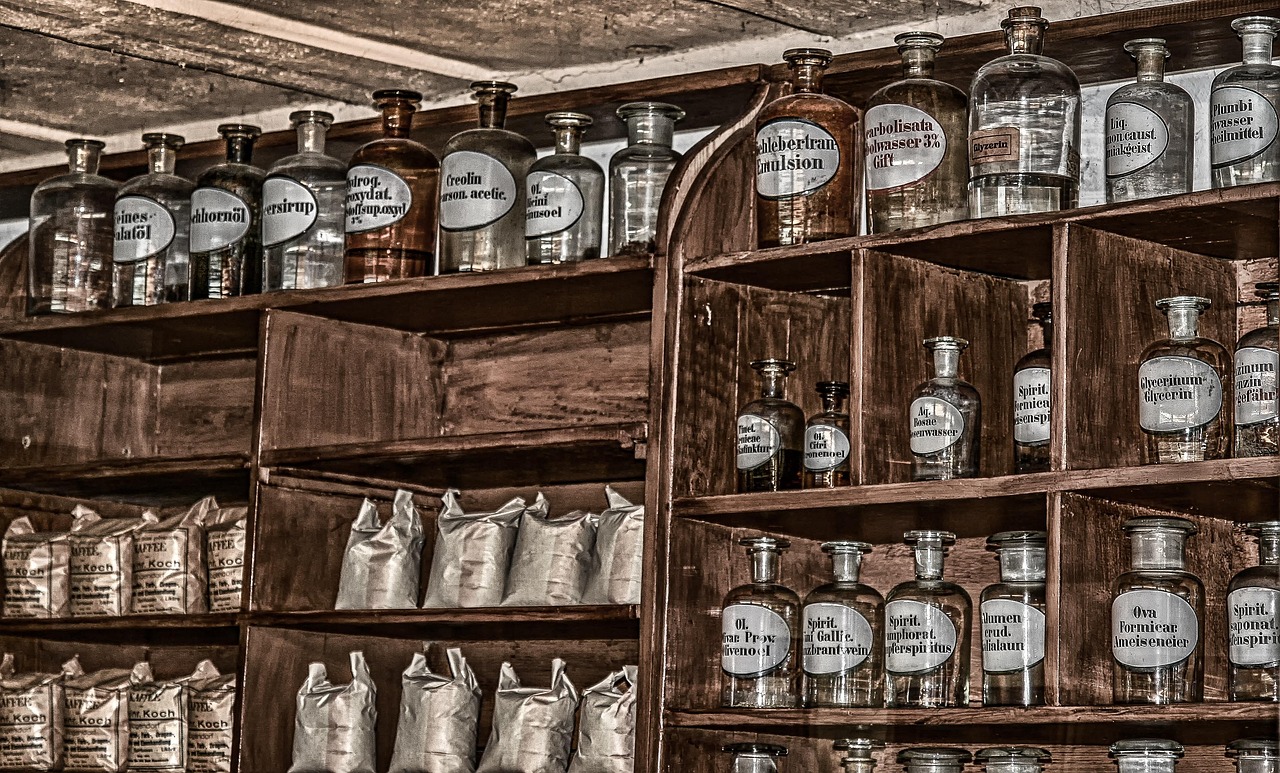If you work in pharmaceutical industry or just think about it, you’ve probably come across “pharmacy” (a complex of scientific disciplines, not the shop), “pharmacology”, “pharmaceutics”, “pharmacopeia”, and a few other words that start with “pharma-”. What is the difference? The question may sound tricky, and I was even asked this once during a job interview.
Let’s start with the basics: pharmacy and pharmaceutics. These words are often used as synonyms, but is that really so?
Pharmacy is the science and practice of discovering, producing, preparing, dispensing, reviewing and monitoring medications, aiming to ensure the safe, effective, and affordable use of medicines. (Wikipedia)
[Synonym: pharmaceutical sciences]
and
Pharmaceutics is the discipline of pharmacy that deals with the process of turning a new chemical entity (NCE) or old drugs into a medication to be used safely and effectively by patients. (Wikipedia)
As you can see, “pharmaceutics” is not a complete synonym for “pharmacy”. It refers to one side of it, namely development and production of drug products. At the same time, the word “pharmaceutics” helps to avoid misunderstandings when you want to talk about development of drugs, not about a place to buy them.
Next in our list is “pharmacology”. It studies interactions between drugs and the human body. Pharmacology is divided into two main branches: pharmacokinetics (what human body does to drugs) and pharmacodynamics (how drugs affect human body).
In the first paragraph, I also mentioned pharmacopoeia (also spelled as pharmacopeia, or pharmacopoea), which is a “book containing directions for identification and quality control of compound medicines, published by a state authority or a medical or pharmaceutical society”. (Wikipedia) Thus, pharmacopeia is a collection of standards and has legal status. Originally, it was a book, but today more and more pharmacopeias are published online (like USP) and never get printed. If you have never opened a pharmacopeia, you can browse the current edition of the International Pharmacopeia from WHO that has always been open to public.
Here are a few more terms beginning with “pharma-”:
Pharmacognosy — The branch of knowledge concerned with medicinal drugs obtained from plants or other natural sources. (Reference)
Pharmacogenetics — The study of genetic causes of individual variations in drug response. (Reference)
Pharmacogenomics — The discipline that deals with the simultaneous impact of multiple mutations in the genome that may determine the patient’s response to drug therapy. (Reference)
Pharmacovigilance — The practice of monitoring the effects of medical drugs after they have been licensed for use, especially in order to identify and evaluate previously unreported adverse reactions. (Reference)
Pharmacochemistry (pharmaceutical chemistry) — A scientific discipline at the intersection of chemistry and pharmacy involved with designing and developing pharmaceutical drugs. Pharmaceutical chemistry covers the identification, synthesis and development of new chemical entities suitable for therapeutic use. (Wikipedia)
[Synonym: medicinal chemistry]
Was this post helpful? Do any other “pharma-” words come to mind? Feel free to share in the comments.
Author: Ekaterina Chashnikova, medical translator and writer
P.S. If you’re a linguist interested in medical translation or an experienced translator wishing to delve deep into pharmaceuticals, consider taking Ekaterina’s course “Pharmacology for Translators and Interpreters” at TranslaStars.





